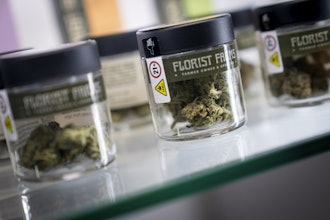
Two weeks ago, a dispensary told me they keep a running list of loyal customers by memory. When I asked how they knew what they would buy next week, they said, "We just guess." In an industry racing toward $45 billion in annual U.S. sales, yet still relying on hand-tracking loyalty preferences, that guesswork poses an existential risk.
From iFrame Menus to Agentic Commerce
Cannabis has come a long way since the simple iframe menu era when everyone looked the same, but digital penetration still lags mainstream retail. Fewer than one in five dispensary transactions originate online, compared with roughly 50 percent for quick-service restaurants and retailers.
Why the gap? Regulation and habits from the illicit market play a role, but so does an outdated view of e-commerce. First, the internet allowed us to order online; then, the smartphone helped us to order from anywhere. Next, agentic commerce with autonomous AI agents will learn, decide, and purchase on our behalf.
Imagine Alexa telling you that you are running low on your favorite 5 mg gummies. Then, it will check real-time inventory at dispensaries that deliver to your ZIP code, apply your unused loyalty points, and schedule a pickup or delivery for tonight's date night in your calendar. All, without you lifting a finger. In other industries, Mastercard is already building tokenized rails to let such agents transact securely. Companies like firmly.ai are already enabling a more profound step-change experience than one-click checkout brought to Amazon.
Why AI Matters More in Cannabis
Cannabis products turn over faster than fashion, and dispensaries manage thousands, if not tens of thousands, at one time. New strains, evolving cannabinoid blends, and ever-shifting state regulations mean dispensary menus are rarely the same from one month to the next. That volatility overwhelms static filters and rules-based "customers recently bought" widgets.
Machine-learning systems trained on store-level basket data can surface pairings a human merchant would never spot: the CBN sleep tincture that converts late-night browser abandoners or the terpene profile that upsells a solventless hash rosin fan.
But raw prediction will become table stakes. The real prize is closed-loop autonomy: AI agents that see inventory, pricing, and customer intent in real time, then act, triggering push notification offers and even advising staff when a top-tier customer walks in. Early pilots in the non-cannabis retail market show double-digit lifts in repeat purchase frequency when agents manage replenishment journeys end-to-end.
Powering the Next Wave of Dispensary Innovation
At Mosaic, we began by solving the initial and immediate gap: giving dispensaries a Starbucks-grade digital experience with mobile design UX ordering (after all, 88.8% of our consumers shop and buy on their phones), integrated loyalty and marketing, and seamless payments; all in a single SaaS platform that is easy to manage.
Later this year, we will launch the first Starbucks-like e-wallet designed specifically for cannabis compliance, turning cash-only moments into two-tap payments.
Furthermore, in a world where data is king, Mosaic's platform provides visibility into user behavioral data and activity across web, mobile, kiosk, marketing, and wallet. Mosaic is applying AI for 2026 that can train models that predict purchase timing, not just propensity. Those models will power the next release: autonomous "bud-bots" that understand customers better than they do themselves. They will "nudge" them before they run out, helping them explore new products they are likely to love, and encouraging them to switch to higher-margin house brands. In other words, agentic commerce is tailor-made for highly regulated products.
What Operators Should Do Now
- Own your first-party data. Agents need clean, contextual data, product metadata, basket history, engagement events, etc.. If that data lives in a marketplace's silo, you'll be renting your future.
- Invest in data-driven, real-time infrastructure. Batch exports crushed into spreadsheets won't cut it. You'll want platforms with AI models that read inventory, pricing, user behavioral activity and profiles, as well as loyalty engagements on both individual and aggregate levels.
- Adopt an experimentation AI mindset and educate your staff. Start with a narrow AI objective and expand it throughout the entire business. Ensure that employees are trained to leverage tools like ChatGPT and evaluate future technology tool purchases based on their AI capabilities. AI won't replace great budtenders; it will free them from inventory look-ups and make them experts so they can become trusted advisors. Training frontline teams to interpret AI-driven recommendations turns technology into a human-experience amplifier.
A Closing Thought
When legal cannabis cracks $60 billion U.S. revenue sometime late this decade, the trophies won't go to shops with the flashiest lounges or the cheapest eighth. They'll go to brands and shops that treat every tap, swipe, and scan as fuel for a self-improving engine, one that anticipates desire before the customer articulates it.
The dispensary of 2030 will still smell like fresh flower, but its hardest-working employee could be an invisible agent making a million micro-decisions per second. The only question is whether that agent will be on your payroll or your competitor's.






















